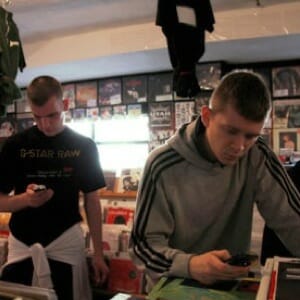SXSW Film Round-Up: Documentaries

As usual, SXSW Film Fest overflowed with documentaries—some good, some medium well. My thoughts on a handful of them.

Outside Industry: The Story of SXSW
As travelogue and documentation on the evolution of the most unique entertainment festival in the country, Outside Industry: The Story of SXSW adequately tells the tale of SXSW’s rise to economic and artistic prominence. When New York City’s New Music Seminar bailed on the idea of a Southwest version in the 1980s, Austin Chronicle delivery boy Roland Swenson approached the paper’s founders about doing something themselves. What began then, 25 years ago, with less than 200 bands has exploded into a national event with well over 2,000 acts, temporarily increasing the city’s population by an estimated 100,000. One of those first acts was Mojo Nixon who offers up some of the more entertaining analyses in a documentary that could have used a few more fireworks.
-

-

-

-

-

-

-

-

-

-

-

-

-

-

-

-

-

-

-

-

-

-

-

-

-

-

-

-

-

-

-

-

-

-

-

-

-

-

-

-












































